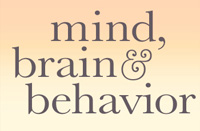Mind, Brain, & Behavior
Master of Arts in Psychological Research
The Program
The Program consists of 35 semester units (includes thesis and six elective units) typically requiring four semesters to complete. Much of the Program is tutorial, with each student working closely with a faculty adviser. Twelve of the units involve independent study with an appropriate faculty member. Students are permitted, on their initiative and with their adviser's approval, to affiliate with laboratories, clinics, or other institutions in the greater San Francisco Bay Area for the purpose of conducting some of the research required by the Program. Under consortium arrangement some courses may be taken at the University of California, San Francisco (UCSF), upon approval of the student's advisor and the UCSF instructor.
Admission Requirements
A bachelor's degree, not necessarily in psychology, is required, including an upper division undergraduate course in statistics (e.g., PSY 571) and in experimental psychology or research methods. The general portion of the Graduate Record Examination (GRE) is required, as are three academic letters of recommendation.

Application Procedure
Application deadline is February 1 for the Fall Semester. Note the Admission Requirements section above. For Application forms and additional information, contact:
Lauren Riley
Graduation Services Liaison
Department of Psychology
San Francisco State University
1600 Holloway Avenue
San Francisco, CA 94132-4168
Phone:
Email: lriley1@sfsu.edu
You can also download the departmental application on our graduate program application page.
Areas of Study
- Cognition
- Emotion
- Motivation
- Memory
- Cognitive Neuroscience
- Physiological Psychology
- Social Cognition
- Consciousness
- Stereotype Threat
- Social Cognitive Neuroscience
- Cross-Cultural Neuroscience
- Positive Psychology
- Cognitive Psychophysiology
- Psycholinguistics
- Quantitative Methods
The Master's Program in Mind, Brain, and Behavior is ideal for students seeking to become well-rounded, highly informed, and skilled researchers in order to (a) prepare for doctoral study or (b) become competent masters-level researchers in settings such as laboratories, clinics, schools, commerce, marketing, and government agencies.
Faculty
Avi Ben-Zeev, Ph.D.,
Yale University (cognition, problem solving and reasoning, social cognition, gender identity, stereotype threat)
Mark W. Geisler, Ph.D.,
Stony Brook University (cognitive neuropsychology, human psychophysiology, electrophysiological models of perception and information processing)
Ryan Howell, Ph.D.,
University of California, Riverside (positive psychology, personality, human happiness and well-being, quantitative methods)
David Matsumoto, Ph.D.,
University of California, Berkeley (emotion, facial expressions, nonverbal behavior, culture)
Ezequiel Morsella, Ph.D.,
Columbia University (action, conscious/unconscious processing, cognitive neuroscience, self-regulation, language production and use, working memory)
Website: Ezequiel Morsella
Ken Paap, Ph.D.
University of Wisconsin (Cognitive Science, Executive Functioning, Bilingualism, Autism)
Gaurav Suri, Ph.D.,
Stanford University (neural networks, decision making, emotion, control, learning, computational methods).
Website: “Readiness Activation and Decision Making Lab”
Affiliated Faculty
David Gard, Ph.D.,
University of California, Berkeley (emotion, motivation, psychopathology, pain)
Melissa J. Hagan, Ph.D.,
Arizona State University (developmental psychopathology, childhood adversity and trauma, neurobiological mechanisms)
Jae H. Paik, Ph.D.,
Indiana University (developmental psychology, early mathematical cognition, language development, cross-cultural cognitive development)
Amy Smith, Ph.D.,
University of California, Santa Cruz; J.D., University of Michigan (legal psychology, social justice, jury deliberations and decision making)